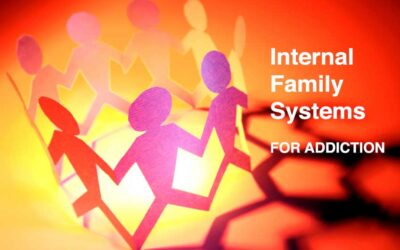On what appeared like it was going to be just another day, I did what I had been doing for quite some time: I donned my running shoes and headed out for my daily morning run before heading to work. Except this time was different: 5 minutes into my run I was suddenly ambushed by a person who appeared in front of me from out of nowhere and punched me in my face. I lost my balance and fell to the ground. Then another person punched me in the back of my head. As I lay there disoriented and frightened, both men quickly searched my body in an attempt to rob me of my valuables. When they discovered I didn’t carry anything they ran away into the darkness. It all happened really quickly, but I remember having a brief moment of being in complete fear resulting from not knowing what would happen next. My brain had no way to predict the future. Would the assault stop? What would happen next?For a few seconds, my destiny was out of my own hands. I was completely at the mercy of someone else. And then, all of a sudden, it was all over, just like a bad dream… and yet the effects still lingered, which is what naturally happens when you experience something traumatic…
Common Symptoms After a Traumatic Event
After the event that happened to me I experienced several symptoms that people with PTSD can experience:
Numbness:
Immediately after it happened I went numb and felt detached from the experience. It was almost as if it had happened to someone else. I finished the run and chalked the whole experience up to a minor inconvenience. These guys, I thought, had delayed my morning routine, and I had to go back home quickly to get ready for work. My wife commented on my calm matter of fact demeanor when I came back home, thinking it was strange that I was not more upset. This kind of numbness or detachment is a common response to a traumatic event and a frequent symptom experienced by someone with PTSD
Replaying the Memory:
Later as I went through the business of my day, I noticed I would keep replaying the image of the guy coming out from the bushes, as well as the precise moment of fear when I realized I did not know what was going to happen next. This also is a frequent symptom of PTSD where people keep reliving the memory of what happened either through intrusive images, flashbacks, or nightmares. The key word here is “intrusive” since the memories here are involuntary and unwanted and likely cause some distress.
Avoidance:
Following the incident I stopped running before daybreak and moved my usual morning routine inside to the gym. While possibly prudent, avoidance behaviors is another typical symptom of PTSD. Life gets rearranged as a precautionary measure, but it costs the person something in the process. For me the morning run I enjoyed for years was no longer. People with PTSD often end up living very restrictive lives where they avoid crowds, social events, driving, leaving the house, or maybe even going to the grocery store. Their desire to protect themselves leads to not doing things anymore they previously enjoyed
Hypervigilance:
A few days later, I did return to the park where the assault had happened, but this time in broad daylight when more people were out and visibility was better. However, I noticed that the first time I did this, I would run in big circles around any possible obstruction behind which a person could be hiding to avoid the possibility of another ambush. I also remember I would be extra careful to keep a lot of space between myself and any other person, having lost the sense of safety of my personal space which I previously took for granted. This kind of hypervigilance or danger orientation which is another symptom of PTSD would not just show up when I was running in the park, but also when I would stop to put gas in my car. I even entertained the possibility that someone could enter my office space when I was working late at night. The world was just not as safe anymore. A person could unexpectedly come out of nowhere, anytime, and any place. This is what the traumatic event had taught me…
Flashbacks:
When I did go running in the park on later occasions and strangers would run close to me or I would sense their presence behind me, I would get an automatic fear reaction. I still remained conscious of it being a fear reaction, but some people with PTSD lose this sense of separation between having a fear and reliving their trauma. To them it is as if the trauma is happening again which is what we call having a flashback.
Emotional Volatility:
Emotionally the week following the assault was very intense for me. Although at first everything felt surreal as if it hadn’t really happened to me, my emotions would soon catch up with me. One moment I would feel sad and victimized, and another angry or vulnerable. People with PTSD often experience heightened emotions of all kinds with anger outbursts that seem out of proportion being one of the more disruptive changes.
Changed Perception of the World:
For a while what happened to me did change my perception of the world. The world wasn’t as safe anymore. I had lost my trusting innocence. This was no longer a world where one could just assume one would be safe. The event had interrupted my mundane sense of life as just a regular routine. People with PTSD often come to live in this changed sense of the world, which never quite goes back to the way it was before.
Changed Perception of Self:
Following the event and to my great surprise I did have this weird experience that what happened to me set me apart from others. I was now one of the few who had experienced a physical assault and robbery and there was this weird feeling that it had tainted me somehow. I was now part of what felt like the 1% who has been victimized by a crime (I don’t actually know what the statistics are), and it seemed like I would never just be able to blend back in with the 99% to whom crime is something you hear about in the news. Many people with PTSD have this experience that being one the few this happens to means they are tainted, not as good, broken, bad, or less desirable. Some blame themselves, some feel shame, some feel guilt for not doing enough to prevent what happened. The trauma and the fact that it happens messes with your sense of self. Even writing this blog post feels like I am writing about something shameful or something that’s a stain on me, even though I know logically it reflects nothing about me. And yet people with PTSD often carry shame about what happened to them and feel hesitant to open up about it to others, which can be an obstacle to working through it and getting support from others.
Substance Use:
Finally, like many people who experience the heightened arousal and stress of their reactions to trauma, I did have the desire to have a drink to calm myself down and take the edge of my heightened arousal. Using substances is not an actual symptom listed as being part of PTSD, but working in a substance use clinic, I know this is a frequent symptom. People with PTSD sometimes use alcohol or drugs to knock themselves out when they have to go to sleep for fear of having nightmares or intrusive memories, or to escape from or numb the heightened arousal and anxiety they feel. In terms of a diagnosis of PTSD, we can think of it as another symptom of avoidance, because it often serves as a way of running from what happened, which unfortunately in the end only serves to get in the way of recovering from it.
Other Symptoms of PTSD:
Other people will experience other symptoms of PTSD. They will want to push what happened away: not talk about it or think about; when they do talk about it they feel distress or stressed out; they might have repressed certain details of what happened or blocked it out; they may feel more detached from people and lose interest in things they used to enjoy; they may find it difficult to sleep or find it difficult to concentrate; they may get startled real easily; and they may do things that are more reckless or careless as if they don’t really care as much about their well-being or whether they live or die.
How Do You Know if You Have PTSD?
Now, Do I Have PTSD, you might ask… The answer is: No I don’t. Aside from not quite meeting the symptom threshold for a diagnosis in terms of the number and severity of my symptoms, my trauma reactions also eventually went away. It took me maybe 1-2 weeks to work through the experience and as I did most of the symptoms went away and I returned to more of a normal. People who develop PTSD, however, keep having their symptoms for at least a month and maybe even for years after their trauma happened. Something goes wrong with the recovery process that would have them return to more of a normalcy. The traumatic event never just becomes a thing of the past but keeps exercising its influence on their life every day.
Criteria for Knowing if You Have PTSD:
So let’s review my symptoms in terms of the standard criteria of a PTSD Diagnosis found in the DSM-5 which we use as the standard for determining psychiatric diagnoses in the US:
CRITERION A (having had a traumatic experience):
Does the traumatic event meet criterion A for PTSD: Exposure to actual or threatened death, serious injury, or sexual violence?
YES: My experience of being assaulted physically and fearing that I could suffer serious injury meets the definition of a traumatic event
IN THE LAST 30 DAYS HAVE YOU EXPERIENCED ANY OF THE FOLLOWING SYMPTOMS:
CRITERION B (Reliving the trauma, 1 symptom required):
[X] Intrusive memories (when not staying busy, tired, or sick)
[ ] Nightmares
[X] Flashbacks (feeling as if trauma is reoccurring)
[ ] Emotional distress when reminded of event
[ ] Physical distress when reminded of event (e.g. racing heart, sweaty palms)
CRITERION C (Avoidance, 1 symptom required):
[ ] Avoids thinking or talking about the event (e.g. pushing thoughts away)
[X] Avoids reminders of the event (people/places/activities, e.g. refusing to watch certain movies or go certain places)
Additional Symptom/ Not DSM criterion:
[X] Using drugs/ alcohol to numb memories/ emotions or sleep without nightmares
CRITERION D (Negative changes to ways of thinking or feeling about Self/ World after trauma, 2 symptoms required):
[ ] Amnesia for aspects of the trauma/ repression
[X] Gloomy thoughts about self/ world (e.g. “I’m useless”, “the world is a mess”, “I can’t trust anyone”)
[X] Blaming self or others for the event (persistently, inaccurately, or unfairly)
[X] Persistent negative mood or emotions (fear, horror, anger, shame, guilt)
[ ] Losing interest in important activities
[ ] Feeling detached from other people
[X] Numb to positive feelings (unable to love or experience joy)
CRITERION E (Fight or flight reactions, Symptoms or arousal/ alertness, 2 symptoms required):
[ ] Irritable behavior and angry outbursts with little provocation
[ ] Reckless or self-destructive behavior (self-harm, driving erratically or too fast, actions suggesting not caring whether they live or die)
[X] Hypervigilance
[ ] Exaggerated startle response
[ ] Problems with concentration
[ ] Sleep difficulties
The Difference between Trauma and PTSD:
In the end I didn’t actually meet the symptom threshold for PTSD, but this doesn’t mean I didn’t have some of the same reactions someone with PTSD lives with every day.
It is also important to point out that PTSD and trauma is not the same thing. PTSD is a particular reaction one can develop to trauma, but many people have traumatic experiences that impact them without developing PTSD. Others might become depressed, develop an anxiety disorder or phobia, or develop ways of protecting themselves from future hurt and vulnerability that show up as guardedness in relationships, difficulty tolerating closeness to others, or some other compromised ability to enjoy certain aspects of life.
And then of course, with the right kind of support, a traumatic experience can also just become a memory: a thing that happened to us in the past that no longer exercises any influence on our current life… I would like to think that is where my own experience has now been laid to rest. Fortunately, I was able to feel supported through the whole process, talk about what happened, receive care and compassion from the people around me, shed some tears, and ultimately find peace with what happened…
But I am no going to lie… I probably won’t be running in wee hours of the morning at a park any time soon…
About Me:

I am Dr. Rune Moelbak, a psychologist in Houston Texas. I provide therapy for people who have experienced trauma and would like the tools to set themselves free… Visit my trauma page to learn more







